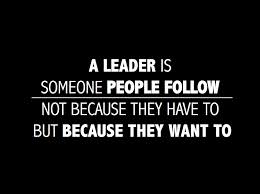“If your actions inspire others to dream more, learn more, do more and become more, you are a leader.” - George J. Flynn”
I truly struggle with leadership. I struggle living in the tension of wanting to be the person described at the beginning of Simon Sinek's "Leaders Eat Last," and the person who I know that is not perfect. It is the tension of leading others towards a vision and knowing that I screw up multiple times everyday. It is this tension that causes me to doubt my own leadership skills and drives me deep into these types of books.
First and foremost this book was great. I loved how it bounced between real world stories of leaders who lead well and others who I am glad I do not work for. The negative leaders were not bashed, but looked at as examples for how to create a work environment that is lacking both a circle of safety as well as a culture that does not promote innovation and creativity.
I also believe this was a great book for ministry leaders who work in environments that require a lot of community thinking, innovative ideas to lead others towards Christ and to equip those individuals in our congregation. The warning that Simon brings forward in regards to leading through dopamine highs only is truly transferable to ministry life. We get an energy boost through high attendance, new members, great one off events, and 500 new Likes or Shares this week on our social media pages. These quick shots of dopamine are great for moral at times, but they lack the long lasting effects of leading as many people to Christ as we can. The in depth look at leadership through the chemical releases in our body is one of the best parts to this book. It is an easy way to read the words on the page and implant your own experiences towards those feelings. It also makes the reader more aware of what chemical release is their primary driver. The scientific look at how trust and commitment are formed through the chemicals in our bodies was fascinating.
“Too many of our environments in which we work today frustrate our natural inclinations to trust and cooperate” - Simon Sink”
A huge chunk of this book is designed to illustrate the need for a circle of safety within your organization that allows the workers to become creative, innovative and open without fear of being replaced, down sized, or forced out.
“A company of strong character will have a culture that promotes treating all people well, not just the ones who pay them or earn them money in the moment. In a culture of strong character, the people inside the company will feel protected by their leaders and feel their colleagues have their backs. In a culture of weak character, the people inside the company will feel that any protection they have comes primarily from their own ability to manage the politics, promote their own successes and watch their own backs...””
I truly believe this 100%. I cannot tell you the creative liberty I feel when I know that I can share openly and honestly around our table meetings. That freedom to do ministry in new ways helps us feel like we can impact the lives of our families in new and better ways. It makes me believe that the kids coming through our ministry will see Jesus come to life in their own life in new and meaningful ways. It all begins at that table and the circle of safety that in created within the organization. I love the meetings where new ideas come to life.
“Leadership is about taking responsibility for lives and not numbers.” - Simon Sinek”
There is a great section near the back of the book that looks at the differences between the generations that make up the work force.
Baby Boomers --------------- Generation X --------------- Generation Y
There is no blame placed for the lack of great working environments, but the look at the genetic make up of organizations based simple on the differences in these three generations of people shows that atmosphere's of unrealistic expectations, simple ignorance between generations, stereotypes that become labels that cannot be shaken and in some cases stubbornness becomes the norm. The key I think is to know the traits of an individual and not the traits that are labelled upon their generation.
I will end this look back with a quote that I found hit the nail on the head.
“It is not the work we remember with fondness, but the camaraderie, how the group came together to get things done.””
Strong teams build strong ministries and in the words of Simon Sinek leadership is not a ticket to do less, but a responsibility to do more.
“Leadership is always a commitment to human beings.” - Simon Sinek”
5/5 and a must read for everyone who is a part of a team, and anyone who interacts with people on a regular basis.

